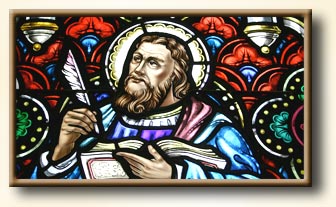|
Of all the celebrations and commemorations in the Christian calendar, there is probably none more familiar to Christians than Christmas. It is also one of the oldest of our feast days, having apparently begun in Rome in the early years of the fourth century of the Christian era. That it falls on December 25th is of no historical significance because no one knows the exact date of our Lord’s birth. There was, in the fourth century, a celebration of the birthday of the sun god on this December date, and it is probable that the Church fixed on the same date to celebrate the Nativity of Our Lord in an effort to create a Christian celebration at the time that would rival or even supplant, as it did, the pagan festival.
The Collect for Christmas Day is noteworthy because it is the most comprehensive Collect in the Book of Common Prayer for its theological content. It includes the whole of the doctrines of the Trinity and of the Incarnation, our adoption as children of God by His grace, and the daily renewal of Christ’s birth in us through the Holy Ghost. This collect is a composition of the 1549 Book of Common Prayer.
The term “Christmas” came into use in England in the twelfth century. It means simply “Christ’s Mass” and is thus a reminder of the central importance to us of celebrating the Mass, the Eucharist, the Lord’s Supper, on this festal day. No Christian should ever miss the Christmas Eucharist save for grave cause. Indeed the Church has often required such attendance as part of the requirement for communicant status in good standing.
Christmas is a time for joy, marking as it does, the coming among us of God, in the person of His Son in human form. We celebrate it with special decorations. Some of these, such as trees, holly, wreaths, etc., may be of pagan origin or modern secular origin. But some, such as candles in the windows, while deprived of religious significance by widespread adoption in the commercial and secular world, have a fundamentally religious meaning. Thus, we place a candle or candles in our windows to light the way for the Christ-child to come into the world and for this reason we ought to light them first on Christmas Eve. In these days of over-commercialization and secularization of Christmas, the Christian must fight hard to replace and retain the deep spiritual and religious meaning of the commemoration. A religion begins to die when its sacred observances become merely popular customs. Thus, the Christian should avoid “drowning” his family and friends with material gifts, gifts which we give in remembrance of God’s gift to us of His Son and His forgiveness and His grace.
Christmas begins at earliest on Christmas Eve -- not at Thanksgiving time! It ends on January 5th, the Eve of Epiphany -- and not the day after Christmas or even New Year’s Day!
Christmas has a place of primacy in the Christian story, for the story begins with the birth of Jesus Christ, and thereafter unfolds steadily to Good Friday, Easter and Ascension Day. Every Christian should observe Christmas with spiritual rejoicing and should strive to maintain its spiritual primacy.
|



